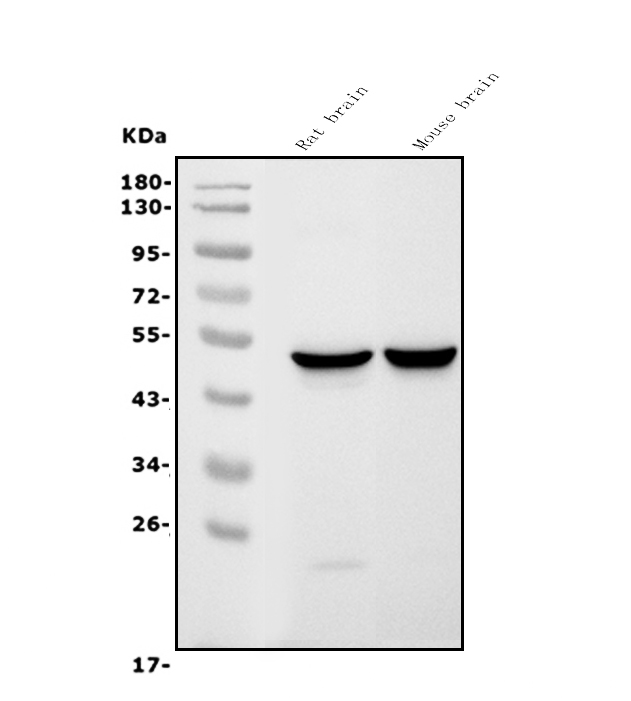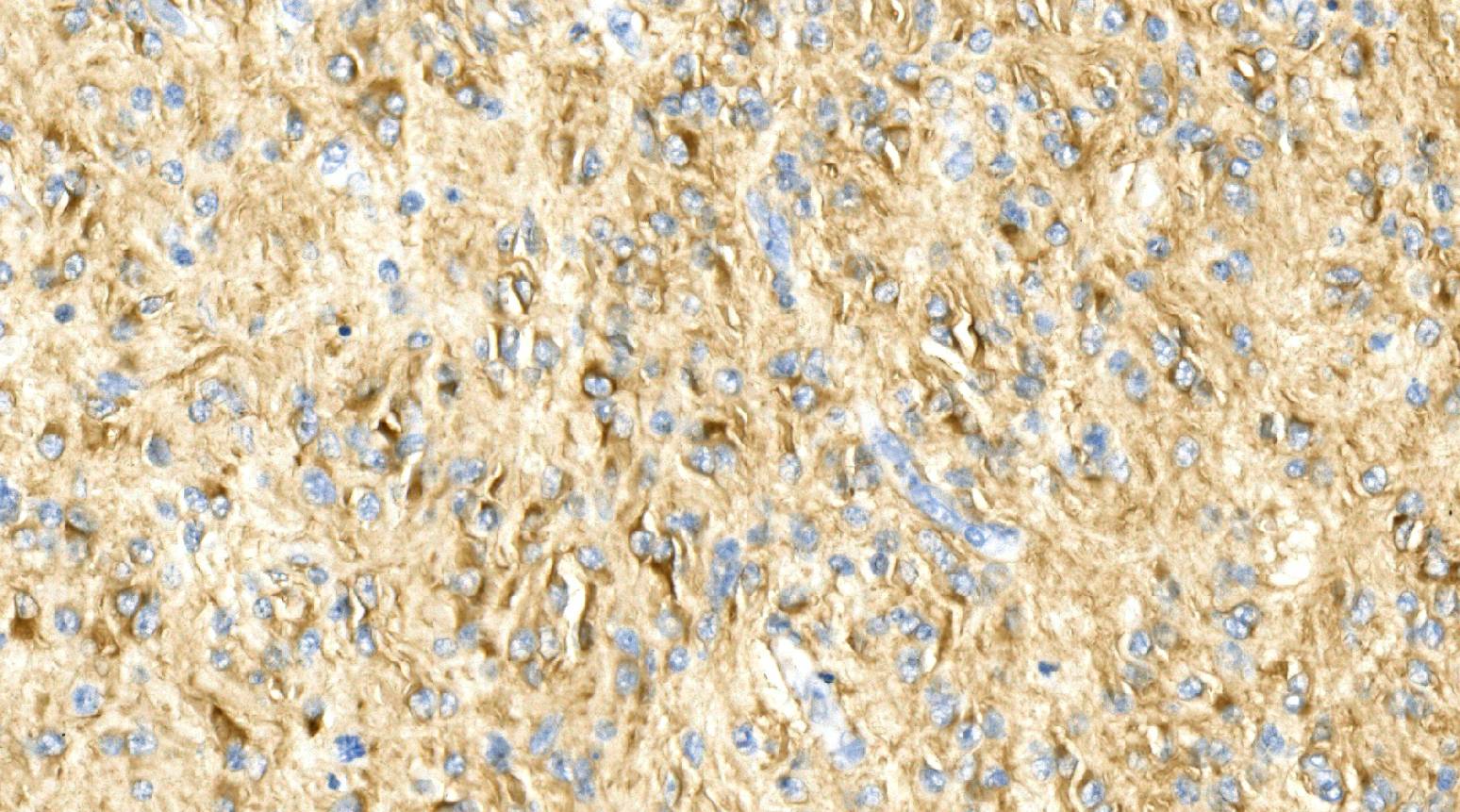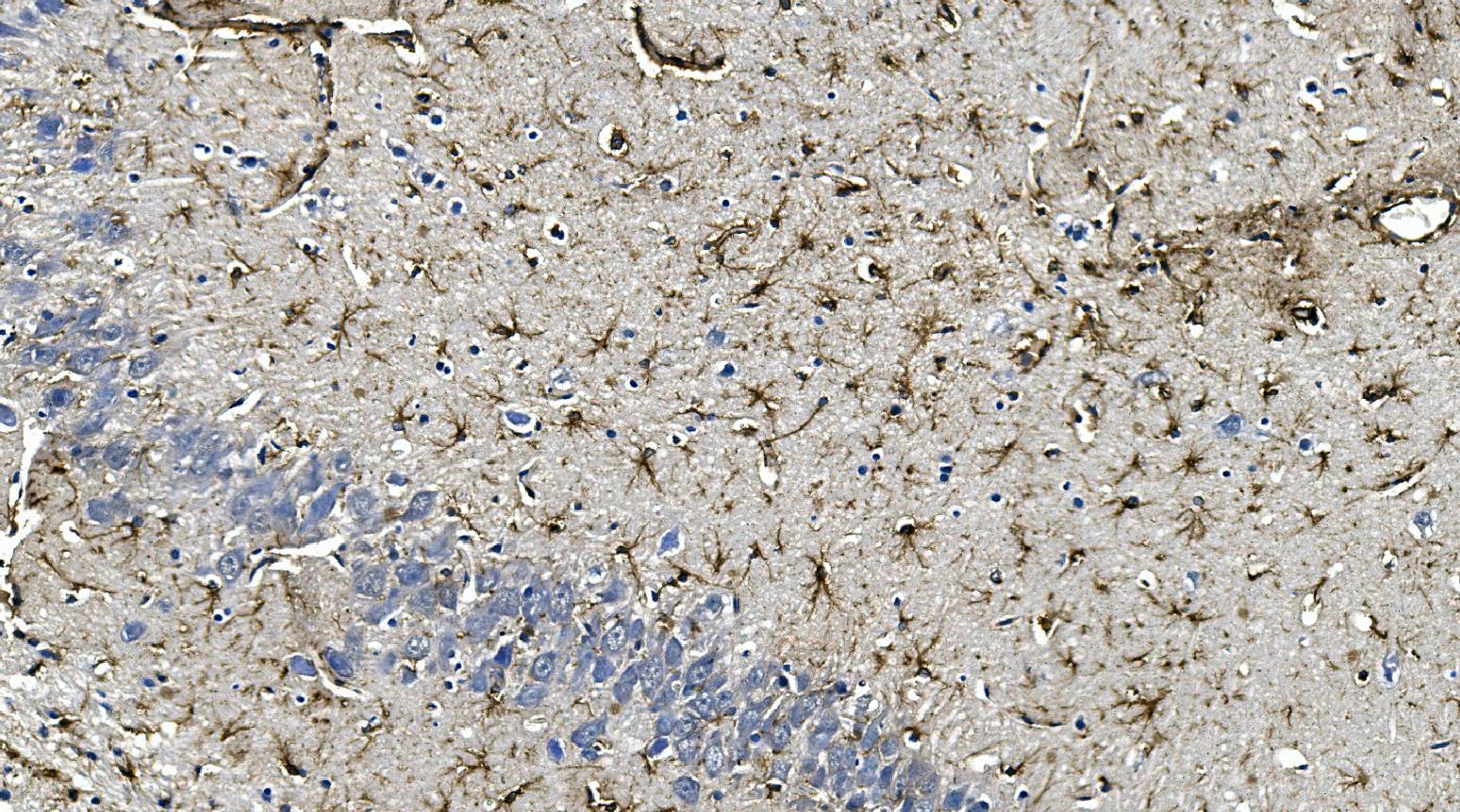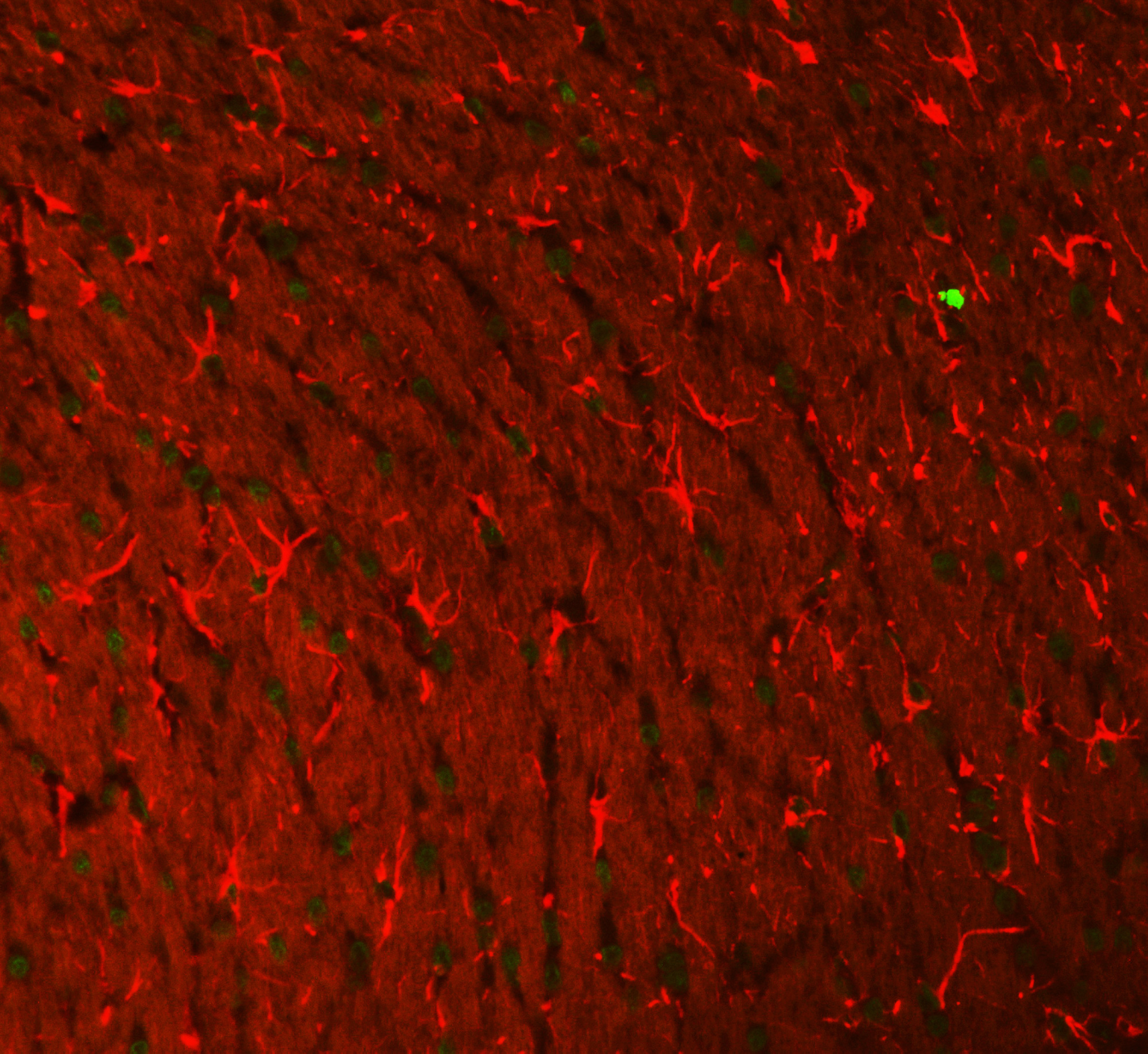| Western blot (WB): | 1:500-2000 |
| Immunohistochemistry (IHC): | 1:50-400 |
| Immunofluorescence (IF): | 1:50-400 |
| (Boiling the paraffin sections in 10mM citrate buffer,pH6.0,or PH8.0 EDTA repair liquid for 20 mins is required for the staining of formalin/paraffin sections.) Optimal working dilutions must be determined by end user. | |

Figure 1. Western blot analysis of anti- GFAP antibody (M00213-8). The sample well of each lane was loaded with 50ug of sample under reducing conditions.
Lane 1: Rat brain tissue lysates,
Lane 2: mouse brain tissue lysates. Use rabbit anti- GFAP 1:1000, probed with a goat anti-mouse IgG-HRP secondary antibody. The signal is developed using an Enhanced Chemiluminescent detection (ECL) kit (Catalog # EK1001). A specific band was detected for GFAP at approximately 50KD. The expected band size for GFAP is at 50KD.

Figure 2. IHC analysis using anti- GFAP antibody (M00213-8). detected in paraffin-embedded section of human glioma tissue. Biotinylated goat anti-mouse IgG was used as secondary antibody. The tissue section was developed using Strepavidin-Biotin-Complex (SABC) (Catalog # SA1021) with DAB as the chromogen.

Figure 3. IHC analysis using anti- GFAP antibody (M00213-8). detected in paraffin-embedded section of rat brain tissue. Biotinylated goat anti-mouse IgG was used as secondary antibody. The tissue section was developed using Strepavidin-Biotin-Complex (SABC) (Catalog # SA1021) with DAB as the chromogen.

Figure 4. IF analysis of Histone H3, GFAP using anti- GFAP antibody(M00213-8), anti- Histone antibody(A12477-2),detected in paraffin-embedded section of rat brain tissues. Heat mediated antigen retrieval was performed in citrate buffer (pH6, epitope retrieval solution ) for 20 mins. The tissue section was blocked with 10% goat serum. The tissue section was then incubated with 5μg/mL mouse anti-GFAP, DyLight488 Conjugated goat anti-rabbit IgG (BA1127), rabbit anti-MBP Antibody , Cy3 Conjugated goat anti-mouse IgG (BA1031) overnight at 4°C. The section was counterstained with DAPI. Visualize using a fluorescence microscope and filter sets appropriate for the label used.

Figure 1. Western blot analysis of anti- GFAP antibody (M00213-8). The sample well of each lane was loaded with 50ug of sample under reducing conditions.
Lane 1: Rat brain tissue lysates,
Lane 2: mouse brain tissue lysates. Use rabbit anti- GFAP 1:1000, probed with a goat anti-mouse IgG-HRP secondary antibody. The signal is developed using an Enhanced Chemiluminescent detection (ECL) kit (Catalog # EK1001). A specific band was detected for GFAP at approximately 50KD. The expected band size for GFAP is at 50KD.

Figure 2. IHC analysis using anti- GFAP antibody (M00213-8). detected in paraffin-embedded section of human glioma tissue. Biotinylated goat anti-mouse IgG was used as secondary antibody. The tissue section was developed using Strepavidin-Biotin-Complex (SABC) (Catalog # SA1021) with DAB as the chromogen.

Figure 3. IHC analysis using anti- GFAP antibody (M00213-8). detected in paraffin-embedded section of rat brain tissue. Biotinylated goat anti-mouse IgG was used as secondary antibody. The tissue section was developed using Strepavidin-Biotin-Complex (SABC) (Catalog # SA1021) with DAB as the chromogen.

Figure 4. IF analysis of Histone H3, GFAP using anti- GFAP antibody(M00213-8), anti- Histone antibody(A12477-2),detected in paraffin-embedded section of rat brain tissues. Heat mediated antigen retrieval was performed in citrate buffer (pH6, epitope retrieval solution ) for 20 mins. The tissue section was blocked with 10% goat serum. The tissue section was then incubated with 5μg/mL mouse anti-GFAP, DyLight488 Conjugated goat anti-rabbit IgG (BA1127), rabbit anti-MBP Antibody , Cy3 Conjugated goat anti-mouse IgG (BA1031) overnight at 4°C. The section was counterstained with DAPI. Visualize using a fluorescence microscope and filter sets appropriate for the label used.



